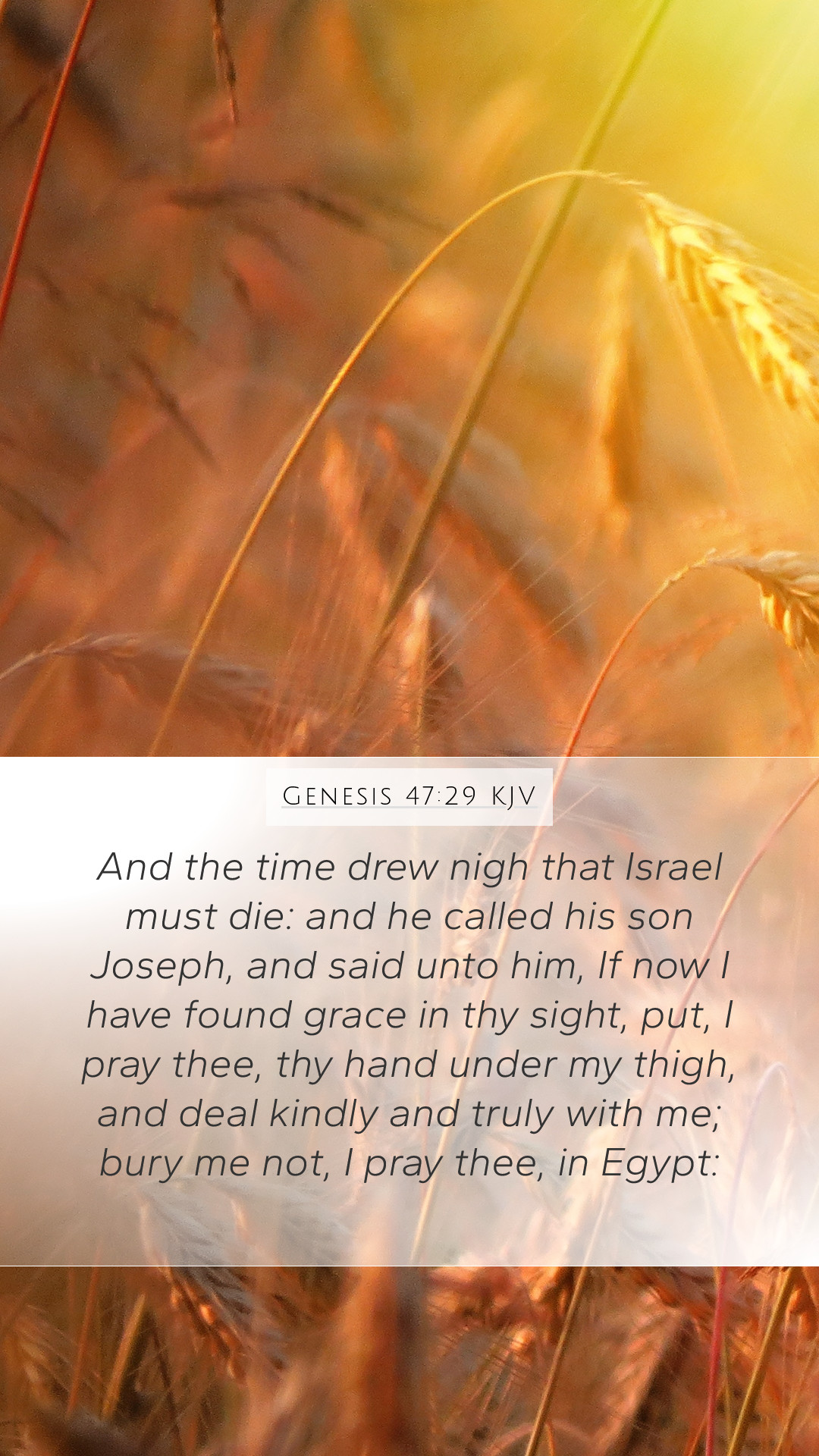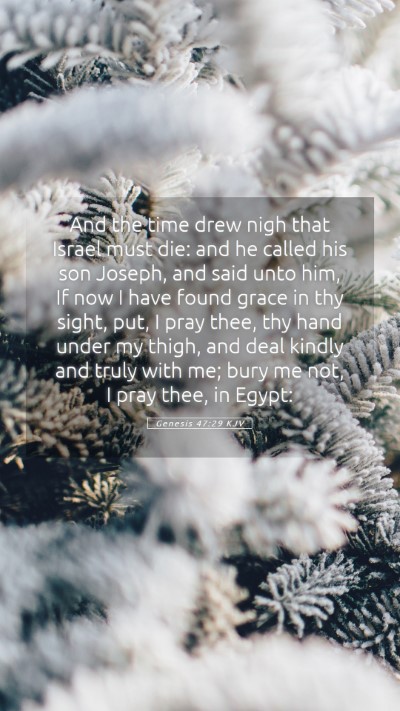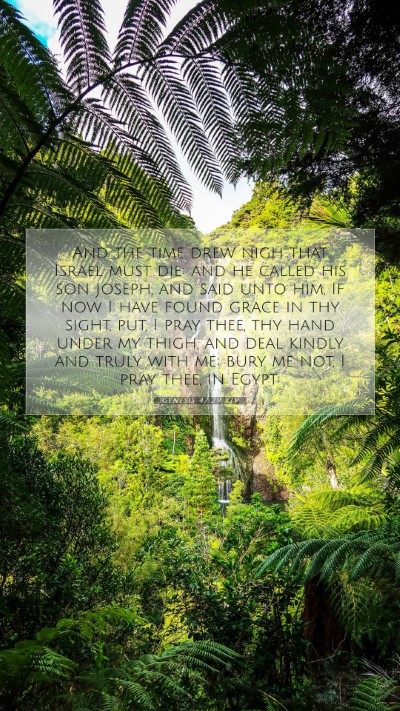Understanding Genesis 47:29 - A Bible Verse Commentary
Genesis 47:29 (KJV): "And the time drew nigh that Israel must die: and he called his son Joseph, and said unto him, If now I have found grace in thy sight, put, I pray thee, thy hand under my thigh, and deal kindly and truly with me; bury me not, I pray thee, in Egypt."
This verse serves as an emotional and significant moment in the narrative of Genesis, highlighting the themes of familial loyalty, the importance of burial customs in the ancient Near East, and the foreshadowing of Israel's future exodus from Egypt.
Verse Meaning and Interpretation
The primary focus of Genesis 47:29 is Jacob’s plea to his son Joseph regarding his burial. This request encapsulates several layers of meaning and serves as a vital instruction for the preservation of his lineage and identity.
- Historical Context:
This event is set at the end of Jacob’s life, illustrating the weight of tradition and the consequences of one’s roots. Jacob, who is now living in Egypt, reflects on the promise of God to bring the Israelites back to Canaan, necessitating his burial there rather than in Egypt.
- Family Responsibilities:
Jacob’s call for Joseph indicates the trust and bond they shared. By asking Joseph to honor this request, Jacob underscores the significance of family obligations and the importance of honoring parents.
- Promise of Return:
Jacob’s desire to be buried in Canaan symbolizes faith in God’s promises. It reflects his unwavering belief that his descendants would return to the land promised to Abraham, Isaac, and himself.
- Symbolism of the Thigh:
The act of placing his hand under Jacob's thigh signifies a sacred oath, highlighting the seriousness of the promise being made. This gesture was a cultural symbol of loyalty and trust in ancient times.
Biblical Exegesis from Commentaries
Matthew Henry's Commentary:
Matthew Henry emphasizes the gravity of the situation as Jacob approaches death. He discusses the importance of seeking God's grace and the assurance of a faithful burial in the land promised to the patriarchs. This request is also seen as an expression of faith – the faith that God will fulfill His covenant.
Albert Barnes' Notes:
Barnes notes that Jacob, in making this request, is not just concerned about his physical remains but is spiritually asserting the identity of Israel as God's chosen people. He believes that burial in Canaan signifies the continuation of God’s plan for Israel.
Adam Clarke's Commentary:
Clarke provides insight into the cultural practices surrounding burial at the time, explaining how the Egyptians had different customs than the Israelites. He highlights how Jacob's request denotes a longing for his homeland and a hope rooted in divine promise.
Application to Daily Life
This verse can lead to reflection on personal values regarding family and heritage. Jacob’s desire for respect towards his final resting place encourages believers to consider their own legacy and obligations to their family traditions. It prompts one to engage in conversations about faith and familial responsibilities.
Cross References
- Genesis 50:24-25: Jacob’s emphasis on the promise to return from Egypt is foreshadowed by Joseph’s similar desires.
- Exodus 13:19: Moses carries Joseph’s bones back to Canaan, highlighting the fulfillment of Jacob's wish.
- Hebrews 11:22: This verse speaks of Joseph’s faith in his last days regarding his bones.
- Genesis 28:13-15: The covenant God made with Jacob regarding the land is vital to understanding this request.
Conclusion
In summary, Genesis 47:29 serves as a profound reminder of the importance of faith, family, and heritage in the biblical narrative. It illustrates the necessity of adhering to one’s spiritual and familial commitments, while also encouraging the believer to reflect upon their own journey of faith and commitment to God's promises.
This insight not only enhances our Bible verse understanding but connects us with centuries of tradition and faith in God's ongoing work throughout history. By examining the meanings of Bible verses like this one, we deepen our Bible study insights and gain a more robust understanding of Scripture.


